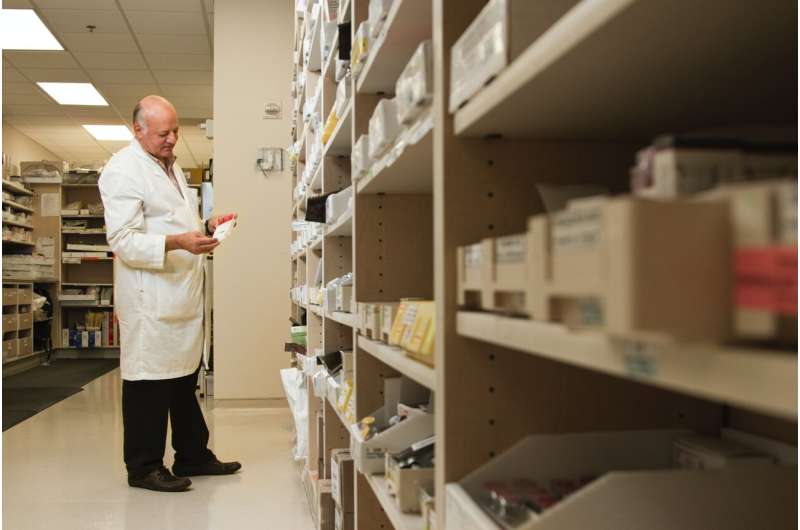Pharmacists Prepare for Potential Impact of Targeted Trump Pharmaceutical Tariffs

Pharmacists are stockpiling essential medicines amid fears that tariffs proposed by President Trump could lead to drug shortages, higher prices, and pharmacy closures. Experts warn of potential disruptions in the pharmaceutical supply chain and increased costs for consumers.
In Salt Lake City, pharmacists like Benjamin Jolley are stockpiling essential medications amid concerns over upcoming tariffs that could disrupt the pharmaceutical supply chain. Jolley and other independent pharmacists have purchased extended supplies of expensive drugs to shield their businesses from a 10% tariff introduced by President Donald Trump in April 2025, with additional tariffs threatened that could further increase costs.
While tariffs aimed at encouraging domestic drug manufacturing are understandable in theory—particularly considering national security concerns about reliance on China—many industry experts and pharmacists warn that these measures could backfire. They believe increased tariffs may lead to significant drug shortages, higher prices, and the collapse of small pharmacies that operate on thin profit margins.
The United States heavily depends on imports from China and India for chemical ingredients essential to producing many medicines. Experts caution that steep tariffs on raw materials and finished pharmaceuticals could escalate drug costs and exacerbate existing shortages. Robin Feldman, a law professor specializing in prescription drug issues, pointed out that reshoring manufacturing capacity takes time and could temporarily harm the industry and consumers.
President Trump announced plans to impose a major tariff on pharmaceuticals, which have enjoyed largely tariff-free trade in the U.S. for decades, citing the need to reduce drug prices and bring manufacturing back home. This announcement prompted industry leaders to consider the reality of adjusting supply chains and the potential for increased prices—up to 30 cents per vial, according to pharmacists—adding significant burdens to small pharmacy businesses.
To mitigate risks, pharmacists like Scott Pace in Arkansas have stockpiled critical generics, such as diabetes medications and antibiotics, to sustain their operations during uncertain times. However, many experts warn that unless reimbursement rates from insurers increase to reflect higher drug prices, many independent pharmacies may face closure.
Industry insiders also highlight that extensive tariffs could discourage foreign manufacturers from producing in the U.S., particularly for generics, which constitute 90% of prescriptions but often operate on razor-thin margins. Some companies, like Fresenius Kabi, have expressed concern that tariffs on raw materials could paradoxically push pharmaceutical production overseas or increase prices.
Despite some proponents viewing tariffs as a way to incentivize domestic manufacturing and reduce reliance on foreign imports, industry analysts emphasize that substantial changes require time, investment, and policy adjustments. Many generics firms have already faced financial struggles, and tariffs alone may not be enough to bring manufacturing back to the U.S.
European countries' lower drug prices and more stable contracts for generics present a contrasting model, but efforts to establish manufacturing plants in the U.S. face economic and logistical challenges. The overarching concern remains that rushed tariff implementation could worsen drug shortages, increase costs, and threaten the stability of the American pharmaceutical supply.
Source: https://medicalxpress.com/news/2025-05-pharmacists-stockpile-common-drugs-chance.html
Stay Updated with Mia's Feed
Get the latest health & wellness insights delivered straight to your inbox.
Related Articles
Limited Impact of Higher Education on Protecting Against Alzheimer's Disease
New research reveals that higher education offers limited protection against Alzheimer's disease and may lead to faster cognitive decline after diagnosis, underscoring the importance of early detection in well-educated adults.
Enhancing Parasite Detection with AI-Powered Digital Microscopy
A new study demonstrates how AI-powered portable microscopy significantly enhances the detection of soil-transmitted helminths, aiding global health efforts in resource-limited settings.
Common Nasal Spray Shows Promise in Reducing COVID-19 Infection Risk
A clinical study shows that a common antihistamine nasal spray with azelastine can cut COVID-19 infection risk by nearly two-thirds, offering a promising preventive tool against the virus.
Public Awareness Urgently Needed for UTIs to Combat Rising Antibiotic Resistance
A new international study highlights significant gaps in public knowledge about urinary tract infections and underscores the urgent need for education to combat rising antibiotic resistance.



